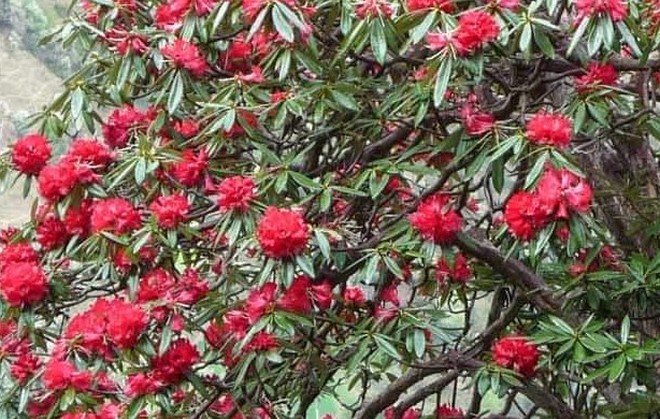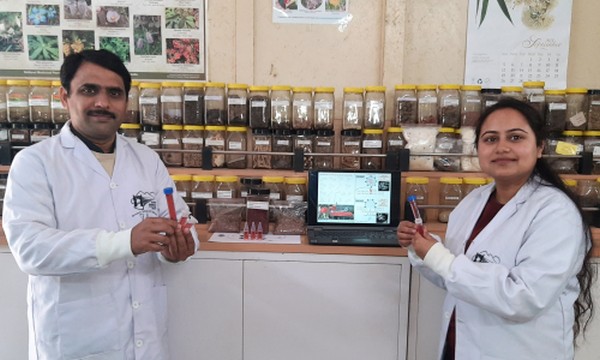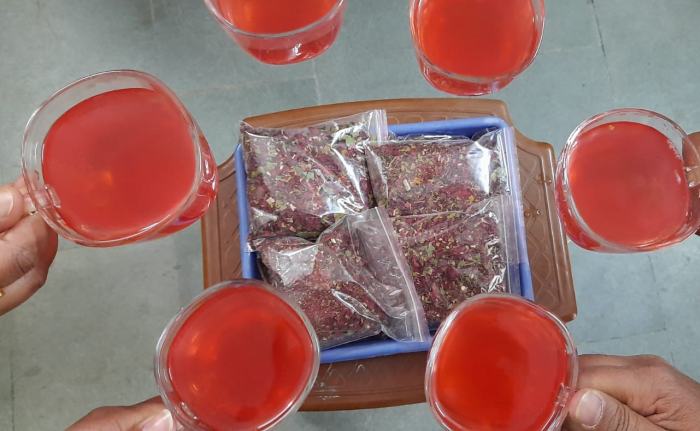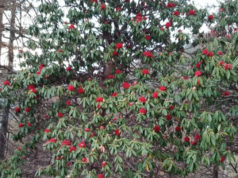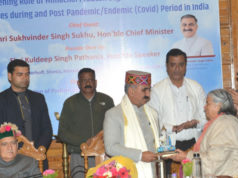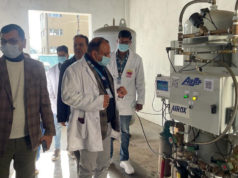Researchers show that phytochemical-rich petals of Rhododendron arboreum found in the Himalayan region, locally called “Buransh” shows antiviral activity and fight against the virus.
Mandi: Exotic flower of Rhododendron, which is widely available in the Himalayan region, contains antiviral substances that can contain the Covid-19 virus.
Researchers from the IIT Mandi and The International Centre for Genetic Engineering and Biotechnology (ICGEB), New Delhi, have identified Phytochemicals in the petals of a Himalayan plant that could potentially be used to treat COVID-19 infections.
Researchers from the IIT Mandi and The International Centre for Genetic Engineering and Biotechnology (ICGEB), New Delhi, have identified Phytochemicals in the petals of a Himalayan plant that could potentially be used to treat COVID-19 infections.
Dr Shyam Kumar Masakapalli elaborated that phytochemicals are considered particularly promising because of their synergistic activity and natural source with fewer toxicity issues,
As Buransh petals are known for their health benefits and researchers extracted the phytochemicals from the Buransh petals and performed biochemical assays and computational simulation studies to understand their antiviral properties.
“We profiled and investigated the phytochemicals of Rhododendron arboreum petals sourced from Himalayan flora and have found it to be a promising candidate against the COVID virus,” Dr Ranjan Nanda said.
Researchers, in their molecular dynamics studies, found that buransh’s phytochemicals have two kinds of effects against the virus. They bound to the main protease – an enzyme that plays an important role in viral replication – and to the Human Angiotensin-Converting Enzyme-2 (ACE2) that mediates viral entry into the host cells.
The researchers also showed through experimental assays that non-toxic doses of the petal extracts can contain COVID infection in Vero E6 cells (cells derived from the kidney of an African green monkey that is commonly used to study infectivity of virus and bacteria), without any adverse effects on the cells themselves.
“A combination of the phytochemical profiling, computer simulations and in vitro anti-viral assays showed that the extracts from the Buransh petals inhibited the replication of the COVID-19 virus in a dose-dependent manner” Dr Sujatha Sunil confirmed.
The findings support the urgent need for further scientific studies aimed at finding specific bioactive drug candidates from R. arboreum, in vivo and clinical trials against COVID-19. The research team also plans to carry out additional studies to understand the precise mechanism of inhibition of COVID-19 replication by specific phytochemicals from Buransh petals.
Two years into the COVID-19 pandemic, the researchers are trying to understand the nature of the virus and discovering new ways to prevent the infection. While vaccination is one route to providing the body with the fighting power against the virus, there is a worldwide search for non-vaccine medicines that can prevent viral invasion of the human body. These medicines use chemicals that either bind to the receptors in our body cells and prevent the virus from entering them or act on the virus itself and prevent its replication inside our bodies.


